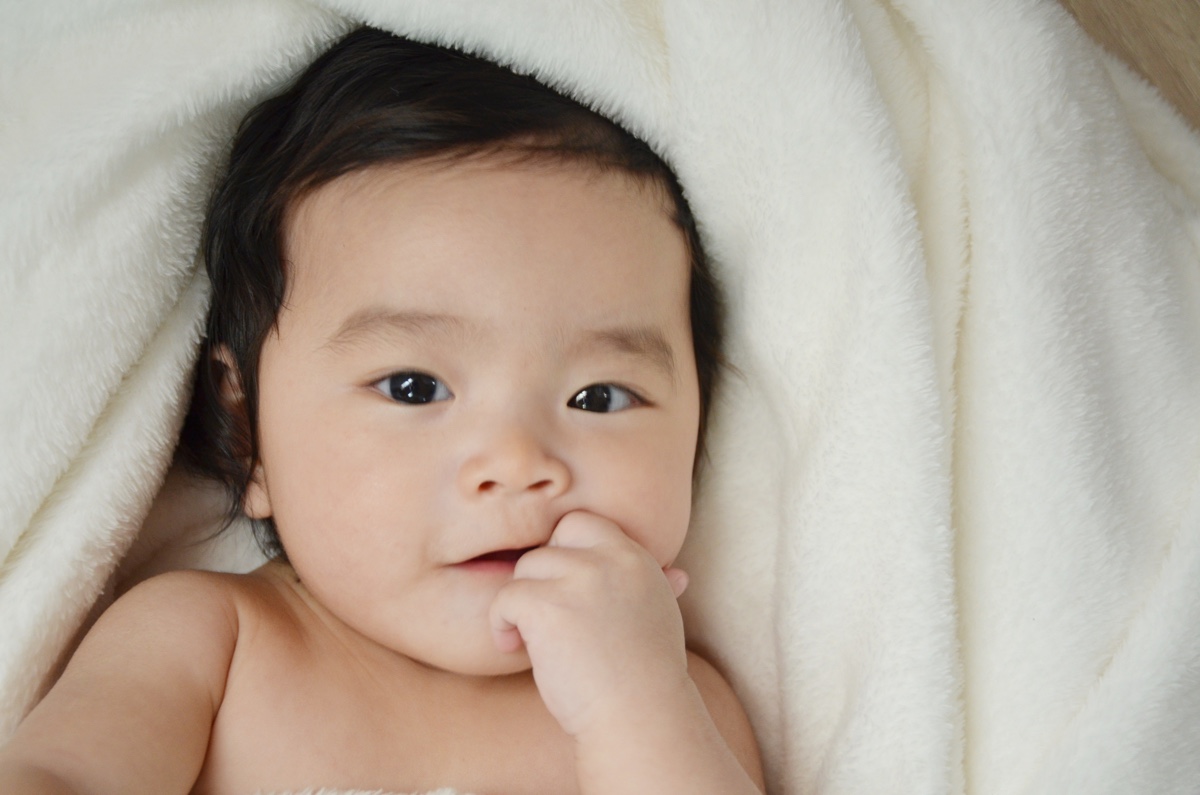Baby Names Show Enormous Gender Gap

Puritans during the 16th and 17th centuries took a values-driven approach to names. They used their children's monikers to promote their morals, conferring such mouthfuls as "If-Christ-had-not-died-for-thee-thou-hadst-been-damned" and "Fly-from-fornication."
The names are pretty wacky to the modern ear, but a new analysis suggests American parents often do the same thing today — and they have very specific ideas of what values they want to confer on boys and girls. [Sophia's Secret: Tales of the Most Popular Baby Names]
Overwhelmingly, boys get names associated with power, strength and rage, like "Savage" or "Dash." Girls get names associated with joy and beauty, like "Lilac" and "Jubilee." The findings come from a new analysis of newly emerging names by Laura Wattenberg, who runs the naming blog BabyNameWizard.
"It would be reasonable to expect that new names, entering a more egalitarian society, would be more balanced" in their gendered expectations, Wattenberg told Live Science. "But in fact, the numbers just don't bear that out."
Names we value
Wattenberg focused only on "new" word names, or names that appeared in the Social Security Administration database of American babies in 2017, but that were given to fewer than 50 babies in the century prior. She combed through more than 25,000 names that met that criteria to pick out names based on common English words. There were 531. Each name had been given to at least five babies in 2017, and the total list encompassed more than 30,000 kids.
She then sorted each of those 531 new names into categories, ranging from power/toughness (Diesel, Wrangler) and speed (Dash, Blaze) to music (Symphony, Cadence) and joy (Rejoice, Joyful). What surprised her, she said, was that these categories turned out to be massively gendered. [The Most Popular Baby Names in the US in 2018]
Ninety-seven percent of names in the power/toughness category were given to boys. So were 94 percent of the names in the "furor" category, which included such monikers as Riot and Rage. Names invoking speed, weapons, animals and courage were all above 75 percent male.
Sign up for the Live Science daily newsletter now
Get the world’s most fascinating discoveries delivered straight to your inbox.
More balanced was the "reign" category, which included names such as Sire and Empress and was 56 percent male. The "inspiration/potential" category was also relatively gender-neutral, with 44 percent of babies with names like Purpose and Journey being male and 56 percent being female.
On the female side of the spectrum were names with connotations of beauty, love and luxury. Eight-four percent of kids given "beauty" names like Gorgeous were female. So were 91 percent of kids with "love" names like Heart and Adore, and 92 percent of "luxury" names like Cashmere. "Joy" was the most overwhelmingly female category, with 98 percent of names going to girls.
A gender gulf
The gender divide is likely only the tip of the iceberg, Wattenberg said, because her analysis excluded highly gendered names like Maverick, which were too popular to count as "new" but which have recently become increasingly trendy. (More babies born today are named Maverick than Jason, Wattenberg said.) It also excluded traditional gendered names like Grace.
The findings seem to cut across demographics, Wattenberg said. Many word names are popular in certain niches. Color names like Indigo (39 percent male) and Story names like Saga (57 percent male) tend to pop up more in places like Colorado and the Pacific Northwest, she said. Weapons names (83 percent male) are more common where National Rifle Association memberships are more common. Royalty-related names are more typical in African-American communities.
"I'm not trying to criticize any individual family for their name choice," Wattenberg said. "Any individual name is chosen with love for a dozen reasons we might not be able to perceive [from the data]. But when we look at thousands of names and the patterns they form, it always tells us something about our culture."
The "unavoidable conclusion," Wattenberg said, "is that as much as huge strides have been made toward equal opportunity, even loving parents have very different expectations of boys and girls."
Originally published on Live Science.

Stephanie Pappas is a contributing writer for Live Science, covering topics ranging from geoscience to archaeology to the human brain and behavior. She was previously a senior writer for Live Science but is now a freelancer based in Denver, Colorado, and regularly contributes to Scientific American and The Monitor, the monthly magazine of the American Psychological Association. Stephanie received a bachelor's degree in psychology from the University of South Carolina and a graduate certificate in science communication from the University of California, Santa Cruz.









